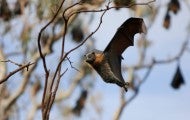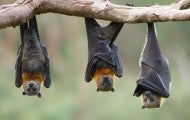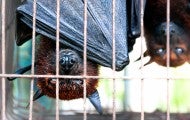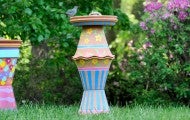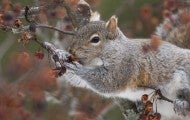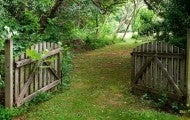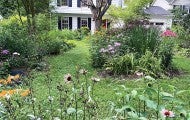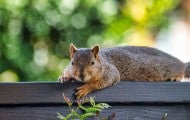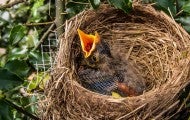It began, almost certainly, in a bat. Then, just as SARS jumped to civets from bats, the virus that causes COVID-19 passed to another mammal, possibly a pangolin. Finally, late last year, the new coronavirus most likely jumped to humans in a wildlife market in Wuhan, China, a densely populated city...
In March, as people struggled to understand how the precursor of the virus that causes COVID-19 emerged from horseshoe bats in southern China and reached humans in the central city of Wuhan, Humane Society International policy specialist Peter Li fielded one question again and again: “Why do Chinese...
Many Marches ago, as I mindlessly contorted myself to pull a deep-rooted weed from the garden patch, my thoughts turned longingly to the smell of fresh basil that would eventually grace what I saw as a still-barren vegetable graveyard. This spot was not so lifeless as it appeared, I would soon learn...
On summer evenings, my husband and I head to the darkest spot of our property to look for the light—in the form of fireflies rising from meadow grasses and twinkling their way into the trees. As the tulip poplars behind this spectacular display settle in for slumber, white yucca flowers open their...
Every day, more and more wildlife habitat is lost to the spread of development. Give a little back by building your own humane backyard! It doesn't matter whether you have a small apartment balcony, a townhouse with a sliver of ground, a suburban yard, a sprawling corporate property or a community...
Longtime Trust friend Fred Ziegler became the first founding member of the Humane Stewardship Alliance, pledging to follow humane stewardship principles in managing his nearly 2900 acres in Tennessee. With three streams and 1.5 miles of frontage along one of North America’s most biologically rich...
For wildlife on a beautiful 32-acre property in Mount Airy, Maryland, life is sweeter—and safer—because of the pledge landowners Jennifer Bevan-Dangel and Andrew Dangel made to follow the Humane Stewardship Alliance’s humane stewardship principles in managing their land. Lands of all sizes can be...
